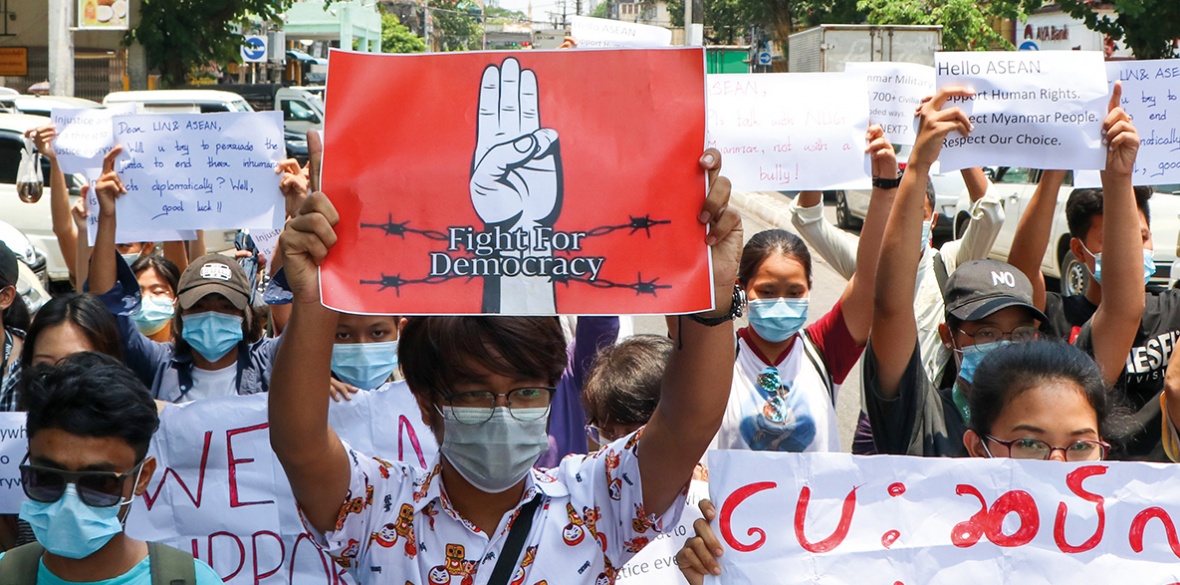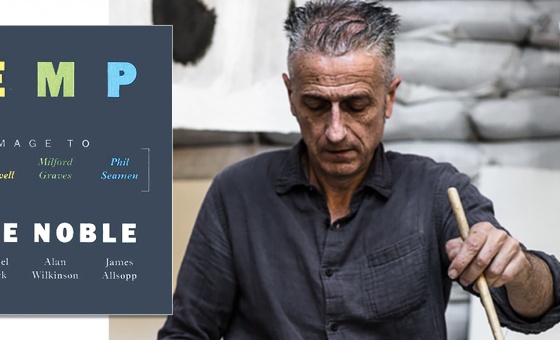This is the last article you can read this month
You can read more article this month
You can read more articles this month
Sorry your limit is up for this month
Reset on:
Please help support the Morning Star by subscribing here
THE military coup in Myanmar on February 1 this year is a product of the country’s long-running social and economic crisis, according to their Communist Party (the party of prefers to refer to its country as Burma, as some other opposition forces also do, rather than the military-chosen name Myanmar.)
The Communist Party of Burma (CPB) was founded in August 1939 by a group of revolutionaries in what was then a British-ruled colony. The founders included national hero Aung San.
The party survived decades of illegality, including prolonged periods of armed struggle against foreign occupiers and a succession of repressive domestic military regimes.
The party suffered a major crisis in the late 1980s with the loss of its remaining base areas in the frontier regions of Burma. They were then scattered and had to rebuild their underground structures within the country as well as among exiled communities.
Highlighting the current crisis, the CPB spokesman says: “People from all walks of life are struggling with exemplary courage against the cowardly military oppressors that are waging ruthless war against unarmed civilians.
“Our party has been resorting to every available means to support our courageous people.”
Today’s military regime has its roots in the coming to power of the Burmese Socialist Programme Party (BSPP), sometimes known as the Burmese Way to Socialism Party, in 1962.
The CPB believes that the BSPP squandered the possibilities of advancing national development, industrialisation as well as popular wellbeing and — far from taking a socialist path — held the country back with its system of crony capitalism.
“Burma’s development in society and economy has made very little progress since Bo Ne Win and the BSPP coup in 1962. One can easily witness the decline in both quantity and quality in every field, including education, health, social welfare and many other aspects.
“If someone says that there are more foreign investments and companies than in the past, we would only point out that one should check out who profited from these.
“The ruling class — as well as the generals — claims that they have created jobs for ordinary people during their rule. To be exact, the number is about 500,000 workers in a nation with a population of 50 million.
“True, ordinary people obtain jobs, but profits went into the coffers of the generals’ family members and their cronies of all sorts.
“The so-called industries that were introduced into Burma by the military generals consist mostly of home industries, where neither modern technology nor heavy investment is involved.”
Myanmar is a textbook example of a parasitic crony capitalism, in which the military are deeply embedded, resulting in poverty for the overwhelming majority of the population and prosperity for the few.
“When one sees new high buildings and posh limos, one can’t help asking who owns them. This only indicates the difference of income between the people of the highest and lowest incomes.”
As with some other south-east Asian countries, Myanmar exports a huge proportion of its population overseas as migrant workers. Despite their super-exploitation, with many working illegally, they have become a significant source of remittance income for the country.
“A few days ago, I noticed some numbers published by the Department of Labour of the present government in Burma. It said: ‘Until June this year, the total remittance of money by Myanmar migrant workers amounted to over 500m USD.’
“Further, it said: ‘The official remittance of money accounted for 0.81 per cent of the GDP in 2016-2017 financial year and 1.06 per cent in 2017-2018 financial year.”
The figure offered by the World Bank is 3.2 per cent for 2019.
“After the break out of Covid-19 and the present conflict in Burma, the migrant workers — most of whom left the nation illegally — could not send their money back to their poor family members back home and the family members are facing insurmountable difficulties.
“Burma’s migrant workers work mostly in neighbouring countries such as Thailand, China, Malaysia, etc and total about five million. You can find Burmese workers even in faraway lands like Qatar, South Korea and Jordan.
“About three million alone are working in Thailand, most of them as low-paid labourers, according to U Myo Aung, the permanent secretary of the Ministry of Labour.”
Some estimates suggest that as much as 10 per cent of Myanmar’s workforce are migrant workers.
Aside from those in employment, Myanmar has also seen a haemorrhaging of its most vulnerable people into refugee camps outside its borders and who often face additional hostilities in exile.
“Burma’s other export to neighbouring countries is refugees, who left their homes because of war or racial oppression. Immigrant camps, containing not less than 100,000 each, are scattered all along the borders and they exist there under the scorn of their hosts.”
The CPB believes that the ruling elite has failed to implement an independent economic strategy, despite the country’s considerable natural wealth.
“The foreign investments are centred on exploiting Burma’s natural resources, chiefly oil and gems. Many labour-intensive projects like plantations and mining are also scattered all over the nation, exploiting one of the world’s cheapest labour sources — Burmese villagers.
“In fact, both the labourers from the plantations and the local people enjoy very little benefit from various plantations that grow bananas, rubber, corn, medicinal herbs, etc, whereas the investors who take away more than 90 per cent of the output to their destined areas reaped high-yielding harvests every season.
“Once the world’s once biggest rice-exporting nation, Burma has now become the world’s biggest labour-exporting nation. The growth of domestic industry is inadequate, leading to the need to import industrial goods from all kinds of countries.”
The crisis, the party points out, is not simply one of industrial backwardness but also flows from the failure to modernise production in the agricultural sector in a sustainable way.
“The exploitation of resources results not only in destroying the environment; it depletes the earth of its irreplaceable natural resources and fertility. The rich soil was left dry and infertile from using artificial fertilisers and pesticides when the plantation lands were returned to the local people.
“The people of Burma are suffering from heedless logging, mining and plantations by the foreign investors and local rich people.
“Landslides on mountain slopes, soil erosion, drying up of streams and rivers, diminishing wild animal species and of course, changes in weather, can be found across the nation.”
The CPB is urging friends in the British labour movement to mobilise effective international solidarity against the coup.










